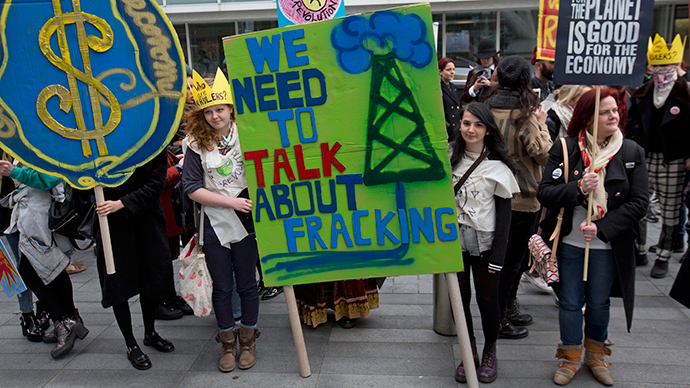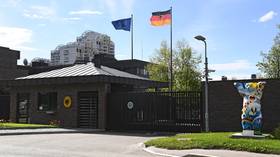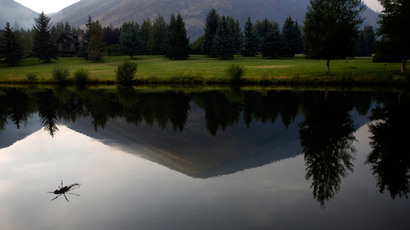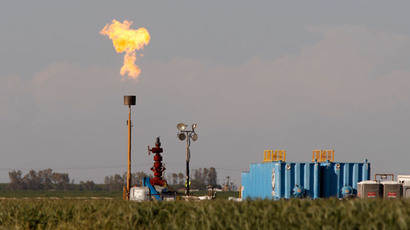Up for shale: Fracking lobby claims UK gas could draw $55bn in investment

The exploitation of the UK’s shale gas reserves could create thousands of jobs and draw over $55 billion in investment, a report says. The British government has championed the practice of fracking despite protests over the environmental consequences.
A study published by Ernst & Young and commissioned by shale
gas trade body UK Onshore Operators Group (UKOOG), estimates the
exploitation of shale gas in the UK could bring 33 billion pounds
($55 billion) of investment and 64,000 jobs. The UK is thought to
have abundant resources of shale gas, especially in the North
which is estimated to contain around 1,329 trillion cubic feet,
many times more than the annual gas consumption of 3 tcf.
To extract the hidden resources a controversial process known as
fracking has to be employed. The practice entails the pumping of
water and chemicals thousands of meters under the earth into
fissures in the rock to release gas deposits. Reports by
environmental groups have shown the practice can have detrimental
effects on the environment, contaminating local water supplies
and causing minor earthquakes.
Fracking was discontinued in the UK in 2011 after the practice
was connected to several minor earthquakes close to the northern
city of Blackpool, the largest of which measured 2.3 on the
Richter scale.
Despite the environmental concerns, British Prime Minister David
Cameron has pledged to “go all out” for shale gas
exploitation. He has championed the process as a way of
drastically lowering energy bills in Britain and well as
stimulating job creation. However, UKOOG has said billions of
pounds of investment will be required in order to establish the
necessary infrastructure in Britain.
“We are building an industry in this country which will not
only give the UK energy security and make a big contribution in
tax revenues but will also bring immense benefits to other
industries and create sustainable, well-paid jobs,” Ken
Cronin, UKOOG chief executive said to the Yorkshire Post.
Activists have attacked the report, branding it “rose-tinted” and
unashamedly in favor of the fracking industry.
"This report is a rehash of rose-tinted industry guesstimates
about the economic potential of fracking in the UK," said
Dr. Doug Parr, chief scientist at Greenpeace. "Paying
accountants to tally up hypothetical jobs won't change the fact
that executives still have no idea whether they'll actually be
able to get gas out of the ground on a commercial scale in the
UK.”
Like many opponents of the controversial shale gas extraction
technique, Parr wants the government to redirect more resources
to developing renewable energy technology.
The practice of fracking has received a widely negative
reputation elsewhere in the world. The US has seen mass
demonstrations by victims of its chemical fallout, accompanied by
studies showing spikes in hereditary conditions found in newborn
children of families living anywhere near a fracking well.














